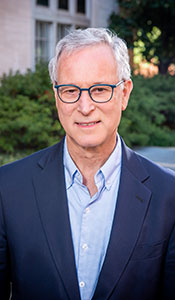We are pleased that in-person visits have resumed in our UAB Adult NF Clinic each Thursday in the Whitaker Building and in our Pediatric NF Clinic on the second and fourth Tuesday of each month at Children’s of Alabama. To ensure the continued safety of patients and staff, requirements for masking and social distancing remain in place, and each person entering the clinic will also be screened for fever. We also plan to continue utilizing telemedicine visits because of the convenience and improved access this method provides our patients, particularly when reviewing test results or following up after an in-person visit. Because pre-pandemic licensing restrictions have been restored, our telemedicine visits are now limited to patients in Alabama and Florida.
As our UAB NF Clinics resume in-person visits for the first time since the start of the pandemic, this is a good time to address a question that patients frequently ask: How often should an individual with NF be seen in an NF specialty clinic? The answer is that the frequency of clinic visits depends on whether an individual with any of the three forms of NF is experiencing active problems that require frequent follow up. For example, regular clinic visits are part of the treatment plan for individuals taking the medication selumetinib. However, for people with NF who are stable and doing reasonably well, the general recommendation is to be seen by an NF specialist about once a year. While the guidance for an annual clinic visit is somewhat arbitrary, it is straightforward and easy to remember for most people and helps to maintain an active relationship with a care provider, as well as identify potentially treatable complications as early as possible.
In my experience, this guideline is generally well-followed for children with NF but less so for adults. There are several reasons for this, including the fact that parents often prioritize their children’s healthcare over their own. Also, NF can evolve rapidly in childhood, and it’s important for children to be monitored for the development of complications such as optic glioma, scoliosis, bone dysplasia, and plexiform neurofibromas. Another impetus for parents to have children seen annually is that most children are well-covered by either private insurance or Medicaid, whereas some adults may not have adequate insurance coverage for annual visits.
Adults with NF who are experiencing few active symptoms may question why it’s necessary to have an annual NF clinic visit. The rationale for yearly clinic visits for adults is that they provide an opportunity to catch the signs of serious complications such as malignant peripheral nerve sheath tumors (MPNSTs) or hypertension that might otherwise go unnoticed until they are advanced. Another reason to consider annual follow-up is to stay up-to-date on new advances in the field. For example, we now have access to clinical trials and even prescription medications, such as selumetinib, that did not exist a few years ago. Also, regular visits provide a way to stay in touch with the medical team so that they are familiar with a person’s history if problems eventually arise.
Because our goal is to help patients to be more proactive about their own care and encourage them to stay in touch with their NF care team, we may consider other options to make this easier for established patients, such as alternating annual in-person visits with telemedicine visits. This option might help ease the time and financial burden for many patients by giving them more flexibility and convenience. If something concerning arises during a telemedicine visit, we can schedule an in-person visit to follow up.
A Final Note
Just as this month’s blog was being completed, new diagnostic criteria for NF1 and Legius syndrome were published. This is an important advance in clinical care for NF patients. I will cover this in detail next month.
